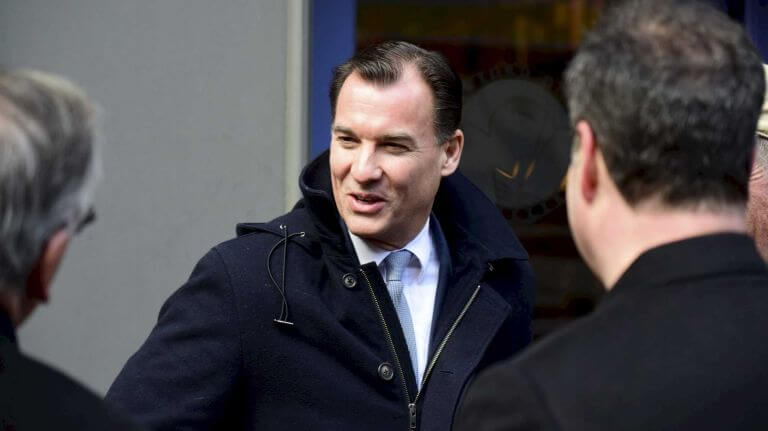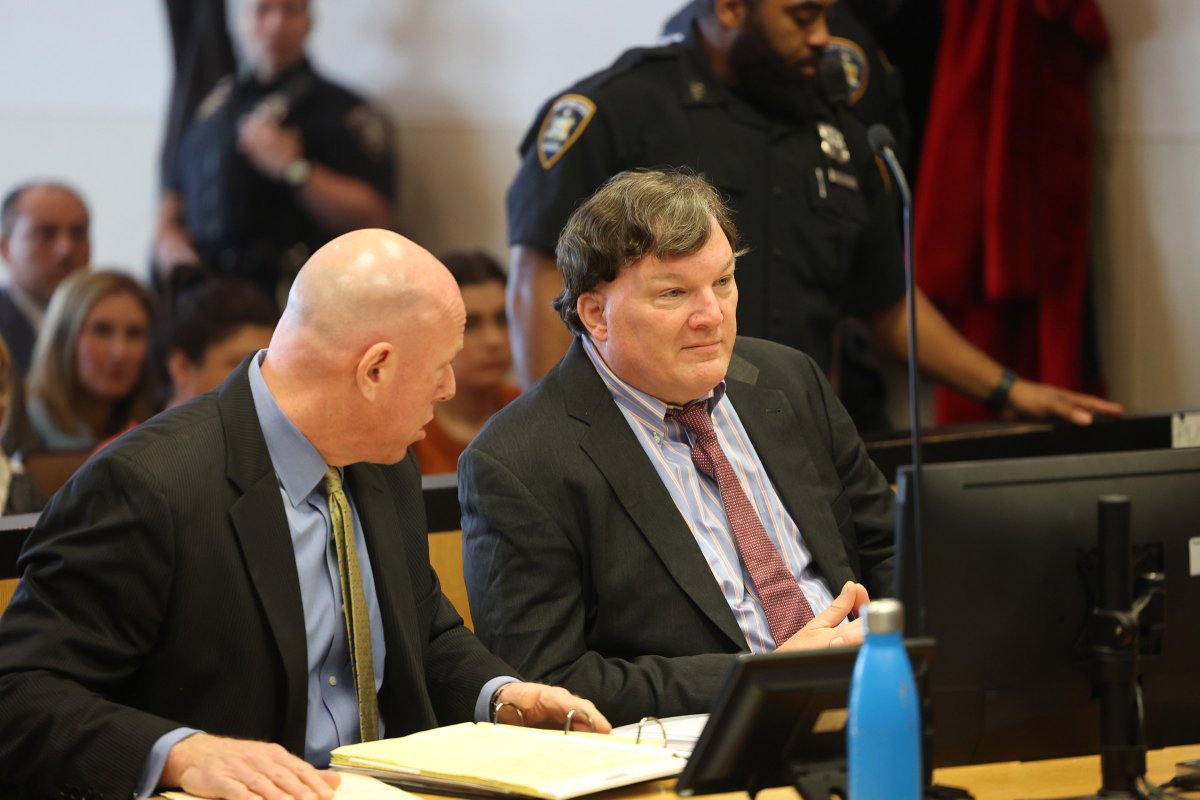Suozzi says he opposes 'Don't Say Gay' law, after calling it reasonable last week

After calling the controversial Florida law critics have dubbed the “Don’t Say Gay” bill “reasonable” on a conservative radio show last week, U.S. Rep. and gubernatorial candidate Tom Suozzi (D – Long Island, Queens) said Tuesday that he opposes the law “full-stop.”
“I want to clear up any misunderstandings. I oppose [Florida] Governor Ron DeSantis. I oppose the ‘Don’t Say Gay’ bill,” Suozzi said. “I fully support LGBT families. I have a long record of doing so. I have a 100% rating from the Human Rights Campaign. I wrote an op-ed piece in The New York Times in favor of same sex marriage back in 2009, before that was the popular thing to do.”
Suozzi denounced the law in response to a reporter’s question during a campaign press conference Tuesday about reporting that he called the Don’t Say Gay bill reasonable last week when he was asked about it on WABC’s Bernie & Sid in the Morning.
Then, in response to a follow up question from the same reporter about why he called the law reasonable last week and is harshly denouncing it this week, Suozzi said at the time he thought he was responding to a question about whether kids should be taught about sex and genitalia in first grade.
“I said, ‘I think that would be reasonable not to do that,’” Suozzi said. “So I was very inartful in the way that I spoke. I should have recognized that I should have said very firmly that what that law did do was inappropriate. But he was saying, you know, I think that most people think that we shouldn’t talk to kids about sex in kindergarten and first grade. I think that common sense says that. And existing law says that in most states, that you don’t talk about sex education till fifth grade. But the law does much more than that. And I should have talked about the overall law, not just the issue of talking about sex and genitalia.”
The Don’t Say Gay law – or the Parental Rights in Education act, as it’s formally named – prohibits discussions of sexual orientation and gender identity in Florida classrooms from Kindergarden through third grade. The law has been widely criticized by LGBTQ plus activists and those on the left as an attempt to censor discussions of sexual orientation and gender identity in classrooms.
Suozzi’s opponents in the gubernatorial Democratic primary – Governor Kathy Hochul and Public Advocate Jumaane Williams – have both strongly denounced the Florida law. When Don’t Say Gay was signed into law last month, Hochul put out a tweet calling the law a “political stunt designed to hurt the LGBTQ+ community.”
Mayor Eric Adams responded to the law’s passage by launching a city-sponsored ad campaign in Florida earlier this month, where billboards will run in several markets denouncing the law and encouraging members of the LGBTQ plus community to move to New York.
Suozzi’s views on the Don’t Say Gay law are presumably not what he wanted to be answering questions about in a press conference focussed on Hochul picking another lieutenant governor a week after former Lt. Gov. Brian Benjamin resigned after being arrested on federal bribery charges.
The congressman said Hochul has disqualified herself from picking another lieutenant governor because she picked Benjamin when there had already been reporting of his alleged ethics violations.
“She picked a lieutenant governor who she knew, and who everybody knew, had ethical problems, and she continued to defend him until he was arrested right under her nose,” Suozzi said. “She’s created a culture of corruption. The secret of meetings, pay to play, abuse of state aircraft and insider deals that resulted in the billion dollar tax giveaway for the Buffalo Bills. So, she doesn’t have the ethical standing to appoint a new lieutenant governor and she simply can’t be trusted.”
However, it was reported last week that Suozzi is still facing his own ethics investigation in the Congress, as the House Committee on Ethics announced it’s extending a probe into the congressman’s finances. The investigation is based on a complaint that Suozzi allegedly failed to timely report his stock transactions for several years.
Suozzi said he every year that he’s been in Congress, he’s filed annual disclosures of stock transactions, which are all managed by his broker.
“After five years, they said oh, in addition to doing your annual disclosure, you’re supposed to do a periodic disclosure within 45 days of every stock transaction,” Suozzi said. “We said we didn’t think we were required to do that because of the fact that every transaction is controlled by independent brokers and I have no discretion. We immediately corrected that and filed all the forms, the periodic transaction reports. And we’ll continue to file periodic transaction reports anytime there’s a stock transaction. So we believe we’re in full compliance on all of the things going forward.”



